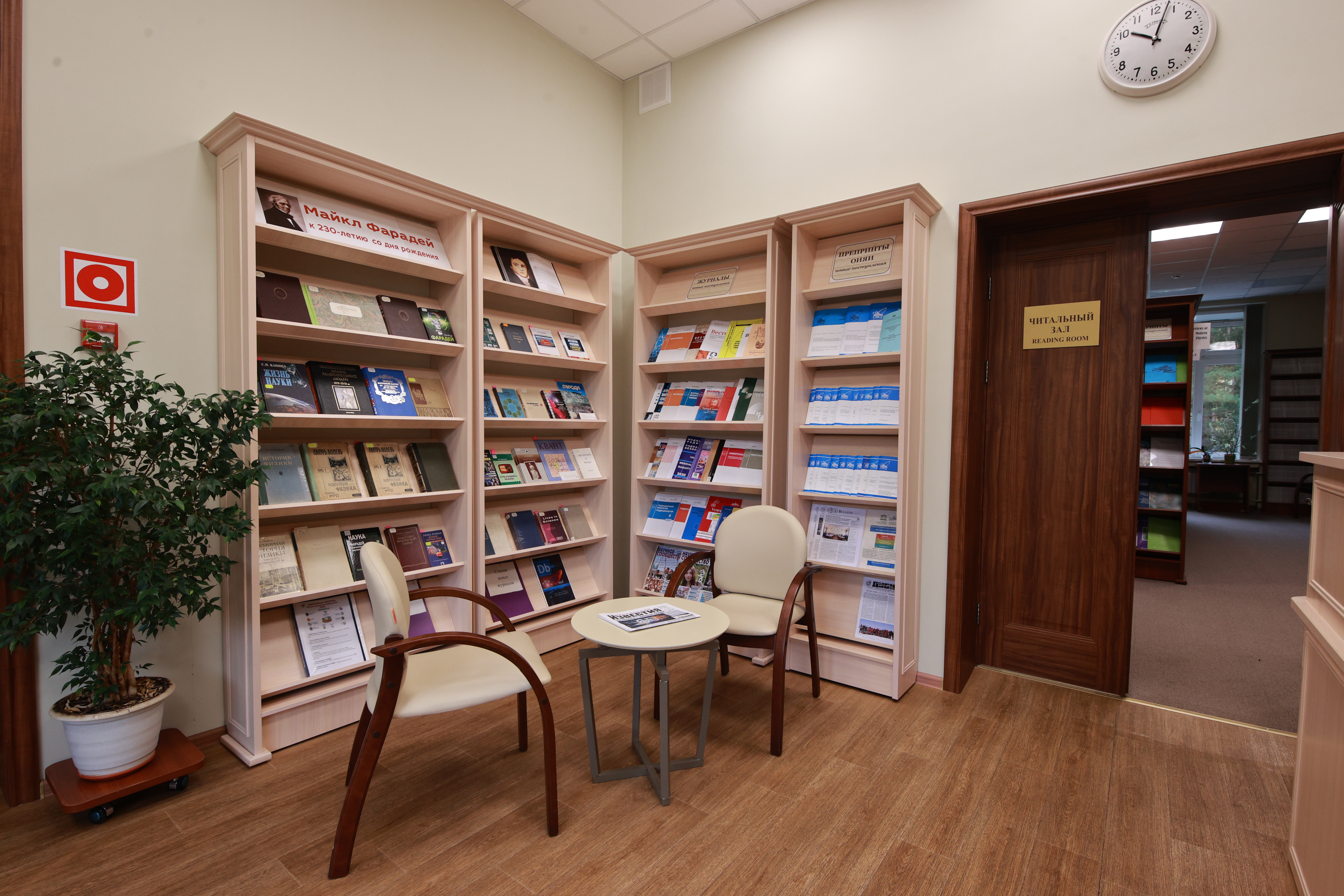JINR Science and Technology Library exhibition dedicated to 230th anniversary of Michael Faraday
Culture, 27 September 2021
On 27 September, an exhibition dedicated to the 230th anniversary of an English experimental physicist and chemist Michael Faraday (1791-1867), whose discovery of electromagnetic induction and the study of the electromagnetic field became one of the foundations for the further use of electricity by people, opens in the JINR Science and Technology Library.
“Our exhibition presents works by M. Faraday, as well as many Russian and foreign books and articles about him, his life and scientific discoveries. Readers can see a unique edition, a rarity: a two-volume book by P. Lakur and Ya. Appel “Historical Physics” (Odessa: Publishing House “Mathesis”, 1908),” Head of the JINR Science and Technology Library Elena Ivanova says.
Faraday is presented as the greatest physicist of the 19th century in the Brockhaus and Efron Encyclopedic Dictionary. He was born on 22 September 1791 in London, in the family of a poor blacksmith. He got only primary education and already in 1804 started working at a local bookbinder. He was mostly self-taught and in 1813, he became an assistant to Professor G. Davy at the Royal Institution of Great Britain in London. Michael’s curiosity and perseverance allowed him to reveal many mysteries of electricity and magnetism.
Michael Faraday was a member of the Royal Society of London and the head of the Laboratory of London’s Royal Institution, however, when the Queen of Great Britain decided to grant him a knighthood, he refused with the words, “I must remain plain Michael Faraday to the last,” which characterises him as a modest person with a sense of self-esteem. He was also an honorary member of the St. Petersburg Academy of Sciences.
Faraday noted that a scientist should be as objective as possible in scientist’s work, “A scientist should be a person who is eager to listen to any suggestion, but it’s up to them to decide if it’s fair. External signs should not bind scientist’s views, they should not have a favourite hypothesis, they must be out of schools and have no authorities. They should treat objects with respect, not individuals. If hard work is added to these personal traits, then they can hope to lift the veil in the temple of nature.
The exhibition will last until 10 October.
Photo by Igor Lapenko
